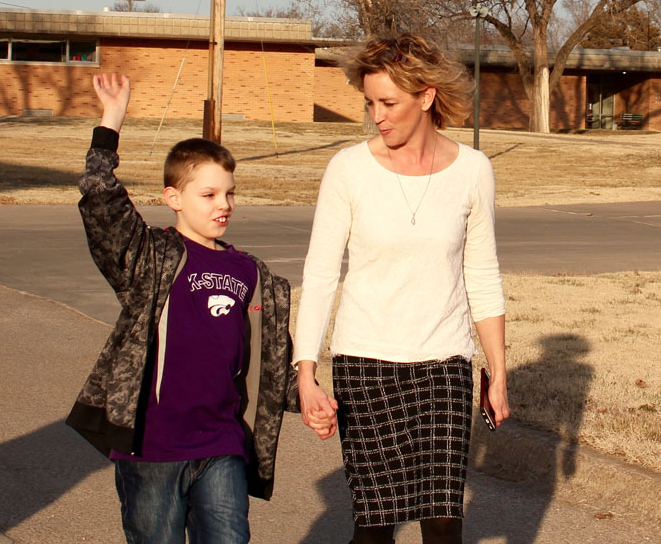By ANDY MARSO

The Kansas Department for Aging and Disability Services is moving about 20 people with intellectual and developmental disabilities out of a facility in Parsons and into community-based services.
But some providers of those services say they’re already strained. Angela de Rocha, a KDADS spokeswoman, said the change is being made to deinstitutionalize residents of Parsons State Hospital and Training Center who don’t need the intensive support that the hospital provides.
The Parsons hospital is one of two facilities in the state that serve Kansans with intellectual disabilities.
“We have a mandate to take care of people in the least restrictive setting possible, and we had some folks out there that were not being cared for in the least restrictive setting,” de Rocha said. “So those people were placed in home and community-based living situations outside of Parsons.”
De Rocha said each person leaving the Parsons facility must be assessed by a community developmental disability organization to determine if their next step is a group home, adult day care or another form of community-based provider.
Some of them will be leaving southeast Kansas to return to their hometowns, she said.
She said KDADS will not know if it saved money by closing the facility at Parsons where the 20 people now live until the agency finds out what it will cost to serve them in home and community-based settings.
“I can’t say that we’ll save money or be spending more money, and in any event that was not the purpose,” de Rocha said. “It wasn’t a fiscal decision.” Scott Thompson is president and CEO of a community-based service provider called CLASS that operates in six locations throughout southeast Kansas. He said some of the people being moved from Parsons and their caregivers have been evaluating his organization to see if it will meet their needs.
“Presently some of those individuals are going through our local CDDO (community developmental disability organization) looking at what service options might be available to them and taking tours and trying to figure out who their provider will be in the future,” he said.
Employees from Thompson’s organization say they’ve been scrambling to aid Parsons residents in their transition from the hospital since they found out last month that the facility would be closing.
Such transitions usually take six to eight months, said Lori Hinman, an eligibility coordinator at CLASS. The Parsons residents have to be out of the hospital and into other services by Sept. 1.
“We’re in a huge time crunch,” she said, adding that the staff at Parsons has “been wonderful” in helping residents with the transition. Hinman said it’s unusual for so many people to leave the state hospital at one time and she’s working to place nine of them in community services right now.
They all require fairly intensive services, she said. “Most of them are needing 24-hour support,” Hinman said. “Not necessarily a group home, but they do need 24-hour support.
That could be in their own home. Some people move in with family and they get it that way.” It can be a challenge for home and community-based providers to find qualified staff in southeast Kansas, according to CLASS officials. Cliff Sperry, CLASS vice president for administration, said no new providers are getting into the business of serving people with developmental disabilities because the pay, most of which comes from Medicaid, is so low.
“The capacity is dwindling would be a good way to put it,” Sperry said.
Andy Marso is a reporter for KHI News Service in Topeka, a partner in the Heartland Health Monitor team. You can reach him on Twitter @andymarso
